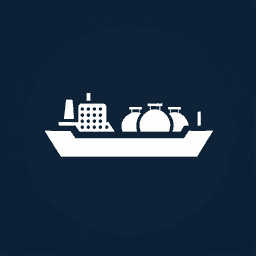
Gas Carrier: Definition, Types, and Examples
February 27, 2025
Gas Carrier
A gas carrier is a specialized type of ship designed to transport liquefied gases in bulk. These vessels are crucial in the maritime industry for the safe and efficient transportation of gases such as liquefied natural gas (LNG), liquefied petroleum gas (LPG), and other chemical gases.
Types of Gas Carriers
Gas carriers are categorized based on the type of gas they transport and the method of containment. The main types include:
- LNG Carriers: These ships transport liquefied natural gas at cryogenic temperatures. They are equipped with sophisticated insulation systems to maintain the gas in its liquid state.
- LPG Carriers: These vessels carry liquefied petroleum gas, which is stored under pressure or at low temperatures.
- Chemical Gas Carriers: Designed to transport a variety of chemical gases, these ships often have specialized containment systems to handle different types of gases safely.
Key Features
Gas carriers are equipped with advanced technology to ensure the safe transport of gases. Key features include:
- Containment Systems: These systems are designed to prevent leaks and maintain the gas in its required state, whether under pressure or at low temperatures.
- Safety Systems: Gas carriers have multiple safety systems, including gas detection, fire suppression, and emergency shutdown systems, to protect the crew and the environment.
- Navigation and Communication: Advanced navigation and communication systems are essential for the safe operation of gas carriers, especially in busy shipping lanes.
Importance in Maritime Industry
Gas carriers play a vital role in the global energy supply chain. They enable the transportation of natural gas and other gases from production sites to markets worldwide, supporting energy needs and contributing to economic growth.
Regulations and Standards
Gas carriers must comply with international regulations and standards, such as those set by the International Maritime Organization (IMO), to ensure safety and environmental protection. These regulations cover aspects like ship design, construction, equipment, and crew training.
Understanding Gas Carriers in Maritime Trade
Gas carriers, also known as gas tankers, are specialized ships designed to transport liquefied gases in bulk. These vessels are crucial in the maritime industry for the safe and efficient transportation of gases such as Liquefied Petroleum Gas (LPG), Liquefied Natural Gas (LNG), and other chemical gases.
Classification of Gas Carriers
Gas carriers are classified based on the type of gas they transport and the method of containment. The main types include:
- Fully Pressurized Ships: These vessels transport gases at ambient temperature under high pressure.
- Semi-Refrigerated Ships: These ships carry gases at a combination of moderate pressure and low temperature.
- Fully Refrigerated Ships: These carriers transport gases at low temperatures and atmospheric pressure.
Difference Between Tankers and Gas Carriers
While both tankers and gas carriers are designed to transport bulk liquids, gas carriers are specifically built to handle liquefied gases. This requires specialized containment systems to maintain the gases in their liquid state, often involving pressurization and refrigeration.
Function of Gas Carriers
The primary function of gas carriers is to transport liquefied gases used for energy, industrial, and chemical purposes. These vessels are equipped with advanced technology to ensure the safe handling and transportation of volatile substances.
What is a Ship that Carries Gas?
A ship that carries gas, commonly referred to as a gas carrier or gas tanker, is a vessel specifically designed to transport liquefied gases. These ships are equipped with specialized tanks and systems to safely carry gases in their liquid form over long distances.
Gas carriers play a vital role in the global energy supply chain, enabling the efficient and safe transport of essential gases across the world.




